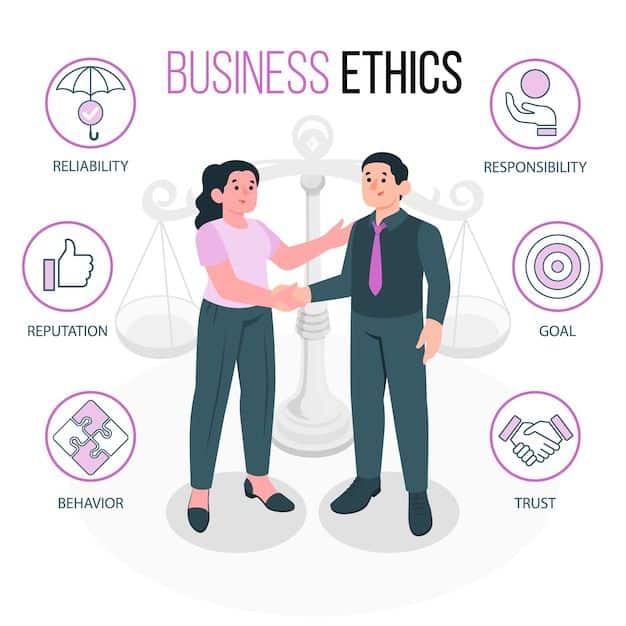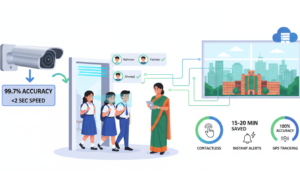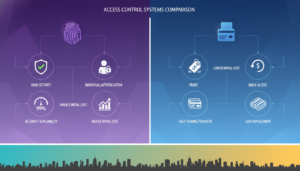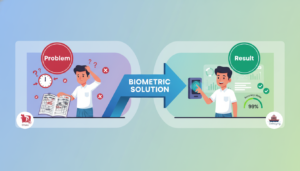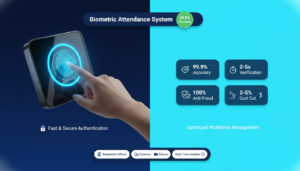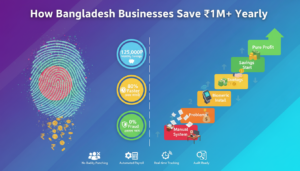What is Business Ethics?
Business ethics refers to the principles and standards that guide behavior and decision-making in the business world. It ensures fairness, integrity, and responsibility while balancing the interests of stakeholders such as employees, customers, shareholders, and the community. When morals and ideals are used to guide behavior and decisions in the business world, this is called business ethics.
Beyond just following the rules and laws, it includes a business’s duty to all of its stakeholders, such as its workers, customers, shareholders, and the community at large. Sometimes it’s hard to do the right thing because it might hurt the bottom line.
Let’s face it; the business world can sometimes feel like a jungle. It’s a dog-eat-dog world out there, and amidst the fierce competition, it’s easy to lose sight of what’s right and wrong. But here’s the thing: businesses aren’t just about profits and losses; they’re about people. And when you put people first, ethics become the cornerstone of sustainable success.
Why Are Business Ethics Important for Growth?
Ethical practices are the foundation of trust and reputation in business. They foster sustainable growth by aligning corporate goals with societal values, building loyal customer bases, and creating a positive work environment.
Key Takeaways:
- Ethical lapses lead to financial losses and damage to reputation (e.g., Volkswagen’s emissions scandal resulted in $1.2 billion in fines).
- Ethical companies outperform competitors by fostering trust, employee pride, and customer loyalty (e.g., Patagonia’s commitment to sustainability).
- Leadership plays a critical role in shaping an organization’s ethical culture, influencing employee behavior and decision-making.
The Price of Ethical Lapses: More Than Just a Bad Reputation
Remember the Volkswagen emissions scandal? In 2015, the world was shocked to discover that the German automaker had installed software in its diesel vehicles to cheat emissions tests. The result? A massive blow to the company’s reputation, a staggering $1.2 billion in fines and settlements, and a significant drop in sales.
Key takeaway: Ethical lapses can cost a company dearly, both financially and in terms of public trust.
Ethical Companies: A Win-Win for Everyone
On the flip side, companies with strong ethical practices often enjoy a host of benefits. A 2021 study by Ethisphere found that the world’s most ethical companies outperformed the S&P 500 by 7.1% over five years. This not only boosts the company’s bottom line but also instills a sense of pride in employees, attracts loyal customers, and contributes positively to society.
Real-life example: Patagonia, the outdoor apparel company, is known for its commitment to environmental sustainability and social responsibility. This has earned them a loyal customer base and a reputation as a leader in ethical business practices. Another example is Ben & Jerry’s, a company that not only makes delicious ice cream but also prioritizes social and environmental issues. Their commitment to fair trade, non-GMO ingredients, and community involvement has made them a beloved brand among consumers.
The Pillars of Business Ethics: Building a Strong Foundation
So, what does it take to build an ethical business? It all starts with a strong foundation built on these key pillars:
- Integrity: This means doing the right thing, even when no one is watching. It’s about being honest, transparent, and accountable in all your dealings.
- Fairness: This means treating everyone with respect and dignity, regardless of their position or background. It’s about creating a level playing field and avoiding discrimination.
- Compassion: This means showing empathy and understanding towards others. It’s about putting yourself in someone else’s shoes and considering the impact of your actions on their well-being.
- Responsibility: This means taking ownership of your actions and their consequences. It’s about being proactive in addressing any negative impacts and striving to make a positive contribution to society.
Ethical Dilemmas: Navigating the Gray Areas
Of course, business ethics isn’t always black and white. Sometimes, there are gray areas where the right course of action isn’t immediately clear. These gray areas can include situations where the ethical choice may not be the most profitable or where there are conflicting interests among stakeholders. In such cases, critical thinking and a strong moral compass become essential for navigating these dilemmas.
- Scenario: You discover that a colleague is engaging in unethical behavior. Do you report them, even if it means risking your own job?
- Ethical considerations: Loyalty vs. integrity, personal gain vs. the greater good
The Role of Leadership: Setting the Tone from the Top
Ethical leadership is crucial for creating an ethical culture within an organization. Leaders need to set the tone from the top by demonstrating ethical behavior in their own actions and decisions.
- Stat: A 2018 study by the Center for Creative Leadership found that 70% of employees believe that their leaders’ behavior is the most important factor in shaping an organization’s ethical culture.
The Power of Consumers: Voting with Their Wallets
Consumers also play a vital role in promoting ethical business practices. By choosing to support companies that align with their values, consumers can send a powerful message to the market and influence the direction of business ethics.
Trend: The rise of conscious consumerism, where consumers are increasingly making purchasing decisions based on a company’s ethical and environmental impact. Conscious consumerism is a growing trend where buyers are not just looking for the best product or service but also considering the company’s values, practices, and impact on society and the environment before making a purchase.
Why Do Some Companies Have Bad Business Ethics?
Companies may need better business ethics because they focus more on making money than doing the right thing. For the sake of making more money, they may make decisions that are not fair or honest.
- Companies might treat their employees poorly by not paying them enough or mistreating them.
- Some companies might lie to customers or cheat them out of their money.
- Some companies might not care about the environment and might do things that hurt the earth.
- Companies might make false claims in their advertising to trick people into buying their products.
- Some companies might be greedy and not care about their actions’ impact on others.
These unethical actions can lead to a bad reputation for the company and a negative impact on employees, customers, and the community. Remembering that companies are responsible for doing the right thing and making ethical decisions is essential.
It’s also important to note that companies are made of people. An ethical culture in the company is essential for ensuring everyone is aware of and aware of the company’s ethical standards. People in the company might make unwise decisions because of a lack of education, pressure, or just not knowing the right thing to do.
The Bottom Line
Business ethics are important because they help companies to make the right choices and treat people fairly. Like how it’s essential to be honest, and kind in our everyday lives, companies need to be direct and type in how they do business. When companies follow business ethics, they create a positive reputation, build trust with customers, and create a good work environment for impact good impact on the community. It’s like when we play a game, and it’s important to play fair and be a good sport; in the same way, companies need to be honest and be good business. Business ethics help ensure that everyone is treated fairly and that the company does the right thing.
The Future of Business Ethics: A New Era of Responsibility
As we move into the future, business ethics will become even more important. With growing concerns about climate change, social inequality, and corporate greed, companies will be under increasing pressure to operate in a responsible and sustainable manner.
Prediction: Companies that prioritize ethics and sustainability will thrive in the long run.
In conclusion, business ethics isn’t just a buzzword; it’s the foundation of a successful and sustainable business. By embracing ethical practices, companies can build trust, enhance their reputation, and create a positive impact on the world. It’s a win-win for everyone involved. So, let’s all strive to do business the right way – with integrity, fairness, compassion, and responsibility.
After all, in the words of the great Mahatma Gandhi,
“Commerce without morality is like a ship without a rudder, bound to be wrecked on the rocks of dishonesty.“
How Tipsoi Can Help In Business Ethics?
If you need help with data or HR, Tipsoi is here to help. However, it can also help businesses be more responsible in other ways. Tipsoi.pro helps make the business world more honest and long-lasting by making sure that HR processes are fair, correct, data safe, and follow the rules.
Transparency and Fairness in HR Processes: The cloud-based HR system and biometric IoT devices from Tipsoi can keep track of time and attendance, plan leaves, and make sure that payroll is done clearly and correctly. Because mistakes and unfair treatment are less likely to happen, workers feel like everything is fair.
Data Security and Privacy: Tipsoi is concerned with data security and safeguards its employees’ private data. This fits with moral worries about protecting workers’ privacy and doing the right thing with data.
More Effective Communication and Engagement of Workers: Tipsoi can help employers and workers talk to each other and work together better by streamlining HR tasks and giving people a central place to find information. Being so open can make people happier and boost their mood at work.
Compliance and Accountability: Tipsoi’s solutions can help companies follow labor laws and rules, encourage moral behavior, and make it much less likely that they will have problems with the public or the government. This makes the people who make choices feel safe and trusting.
Pay attention to your core values: Tipsoi frees up HR staff by doing dull jobs automatically. And this lets themwork on important projects, like spreading the morals and goals of the company, which inspires and motivates people.
Ready to make ethical practices a cornerstone of your business? Explore how Tipsoi can help you build trust, ensure compliance, and create a sustainable future for your company.
Frequently Asked Questions (FAQs)
What are the key pillars of business ethics?
The key pillars of business ethics are integrity, fairness, compassion, and responsibility. These principles guide ethical decision-making and behavior in the business world.
How can ethical lapses impact a company?
Ethical lapses can have severe consequences for a company, including financial losses, damage to reputation, and a decline in customer trust and loyalty. The Volkswagen emissions scandal serves as a stark reminder of the high cost of unethical behavior.
How can leaders promote an ethical culture within their organization?
Leaders play a crucial role in shaping an organization’s ethical culture. By demonstrating ethical behavior themselves and setting clear expectations for their employees, leaders can foster an environment where ethics are valued and practiced.
What is the role of consumers in promoting ethical business practices?
Consumers have the power to influence businesses by choosing to support companies that align with their values. The rise of conscious consumerism highlights the growing importance of ethics in consumer decision-making.
Why is business ethics becoming increasingly important in today’s world?
With growing concerns about social and environmental issues, companies are facing greater scrutiny than ever before. Business ethics will be essential for companies to navigate these challenges and build a sustainable future.
What is Business Ethics?
Business ethics refers to the principles and standards that guide behavior and decision-making in the business world, ensuring fairness, integrity, and responsibility.
Why are business ethics important for companies?
Business ethics build trust, enhance reputation, and foster sustainable growth by aligning corporate goals with societal values.
What are examples of ethical companies?
Companies like Patagonia and Ben & Jerry’s are known for their commitment to sustainability and social responsibility.
Wrapping Up,
Business ethics is more than just a set of rules—it’s the foundation of trust, reputation, and long-term success. Companies that prioritize ethical practices not only avoid scandals but also foster loyalty among employees, customers, and stakeholders. By embracing integrity, fairness, compassion, and responsibility, businesses can create a positive ripple effect that benefits society as a whole. In today’s competitive landscape, doing the right thing isn’t just good morals—it’s good business.

